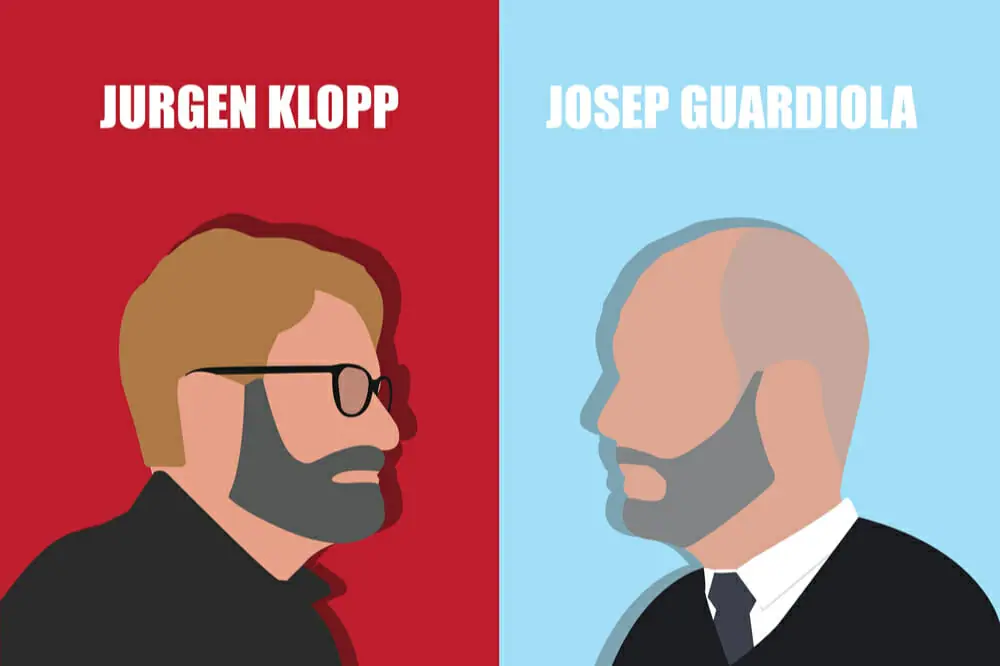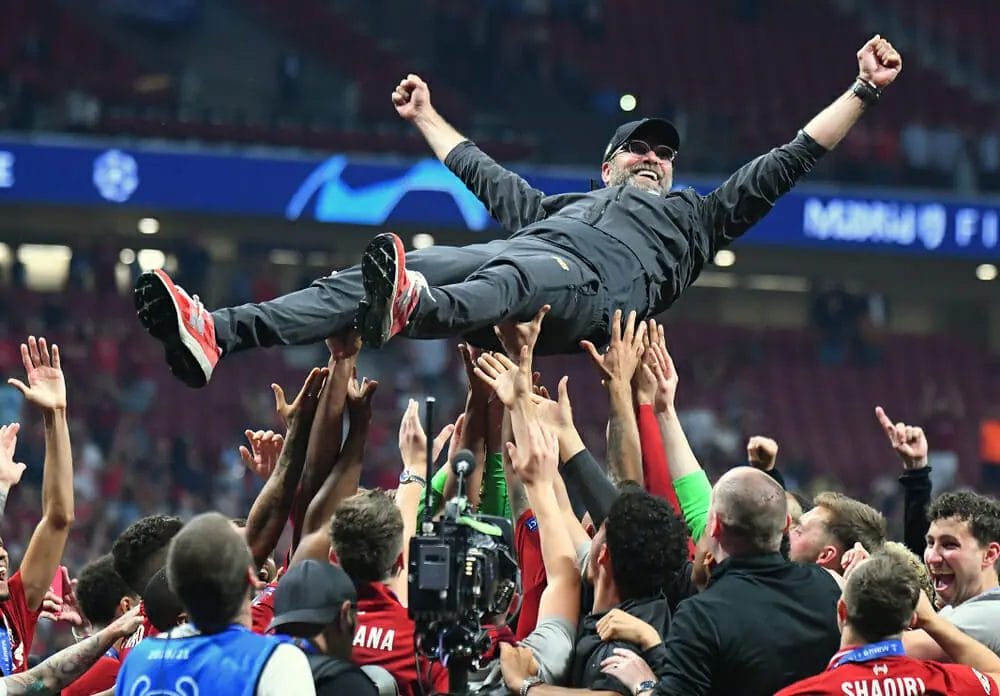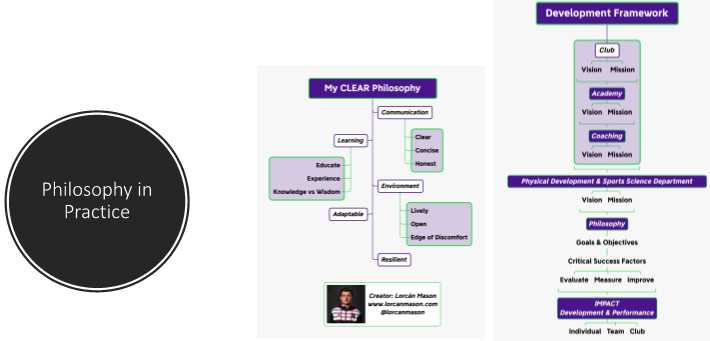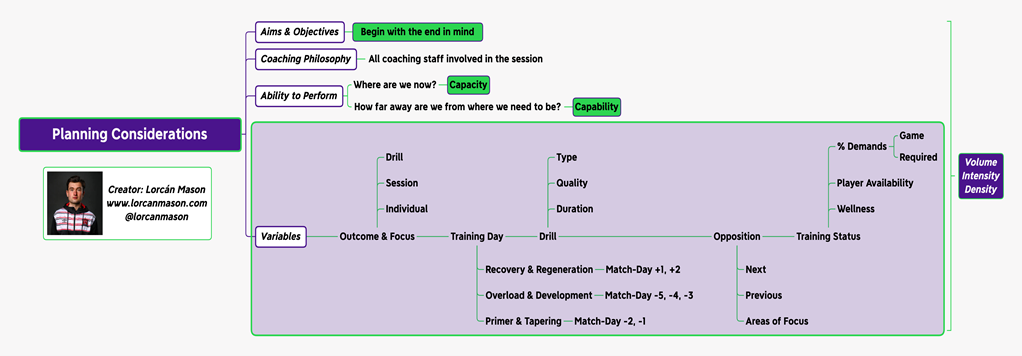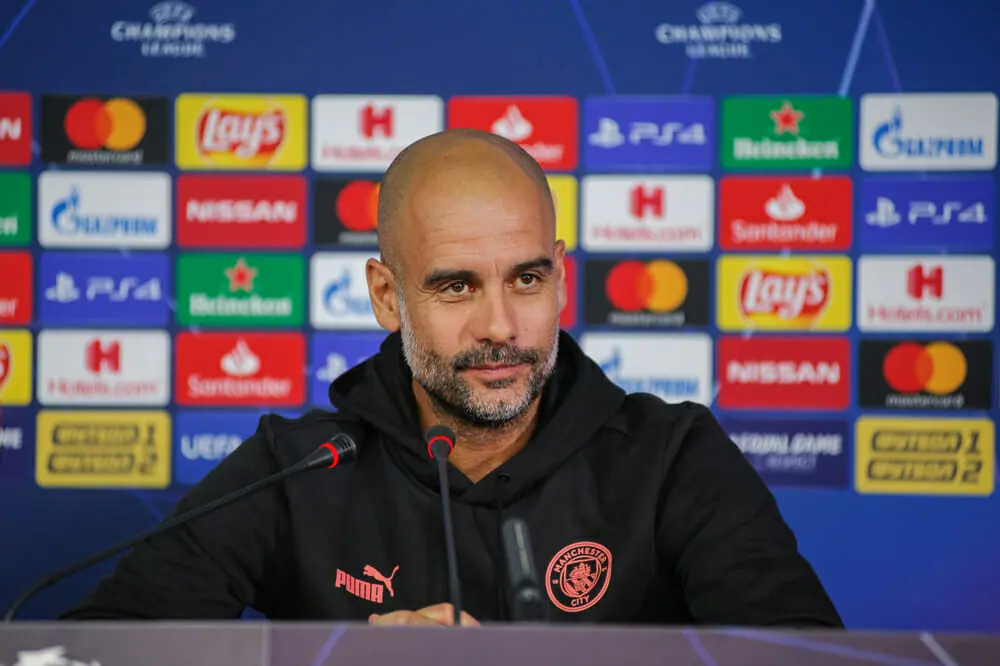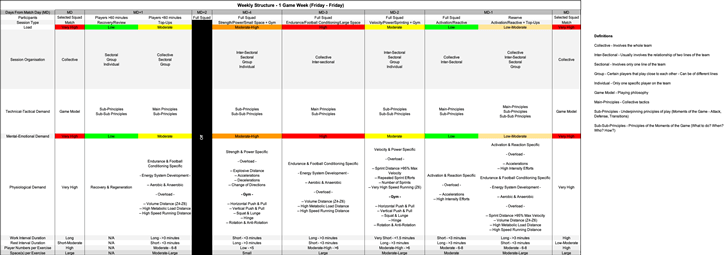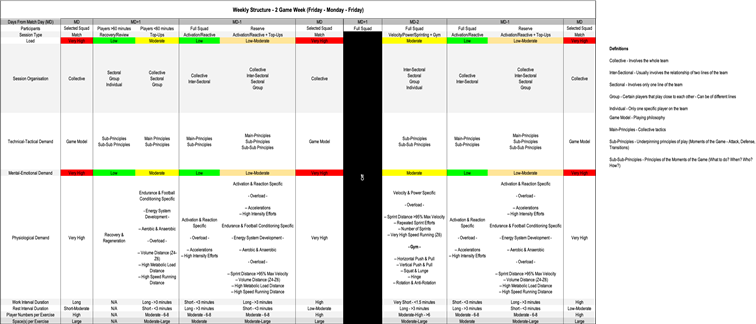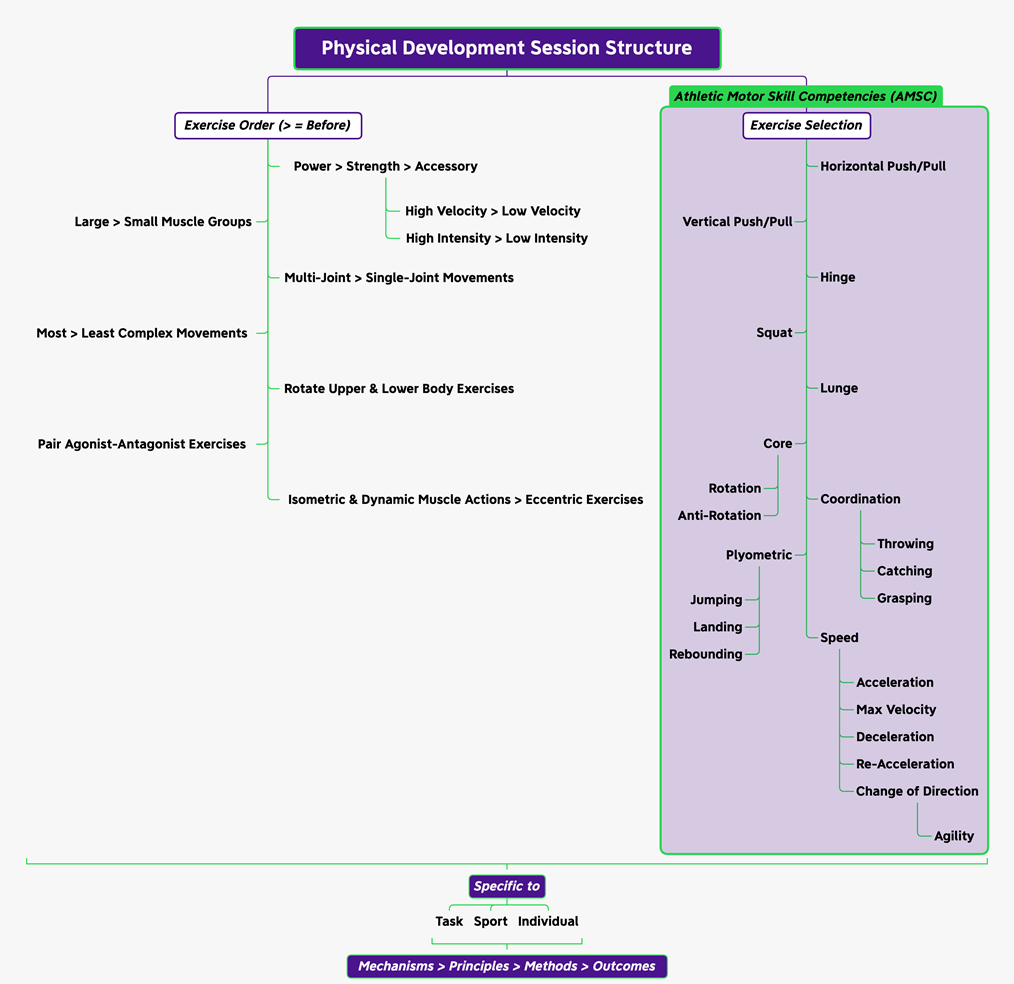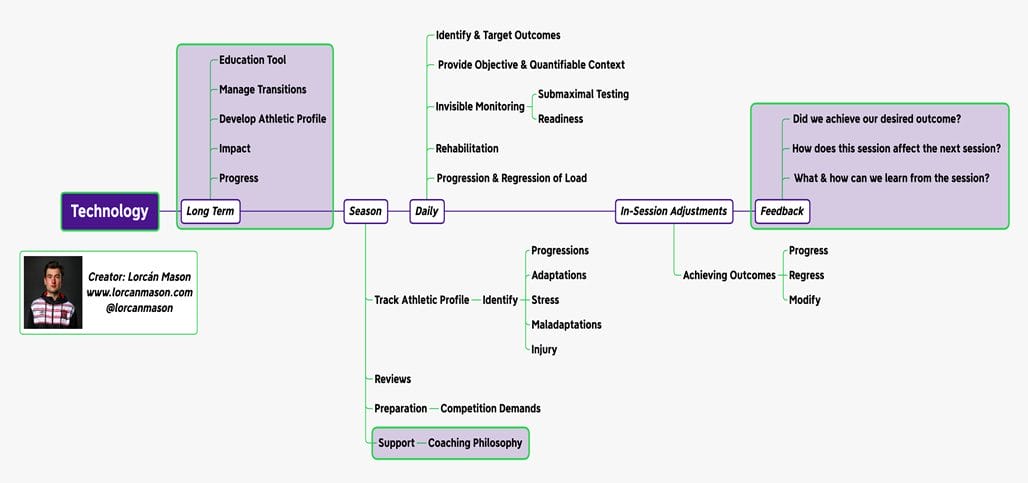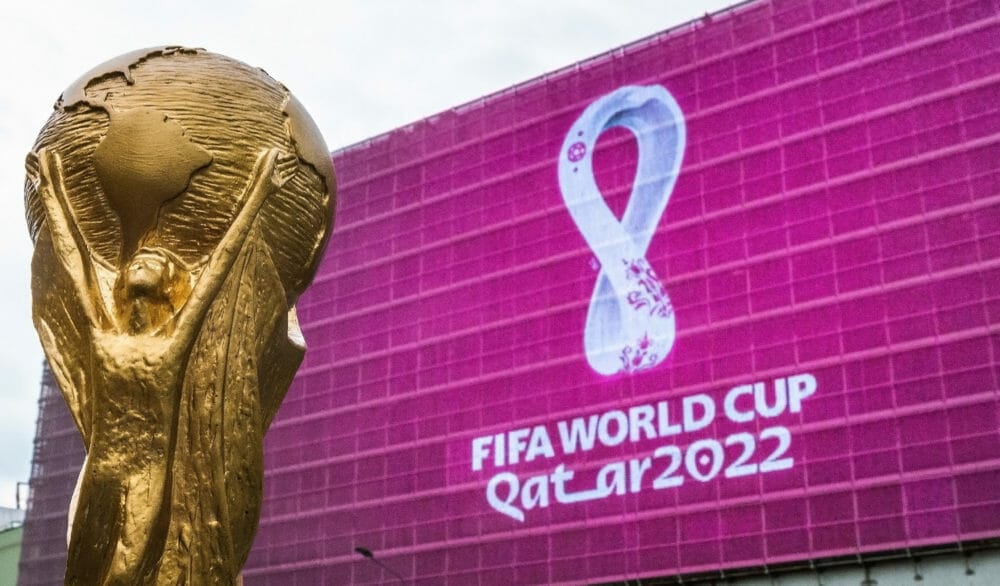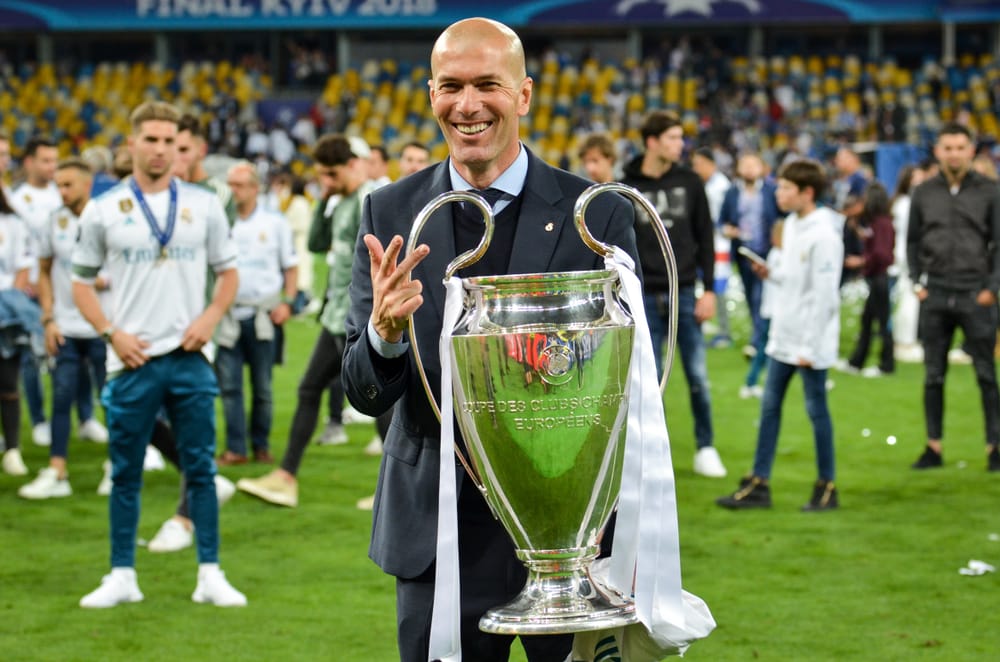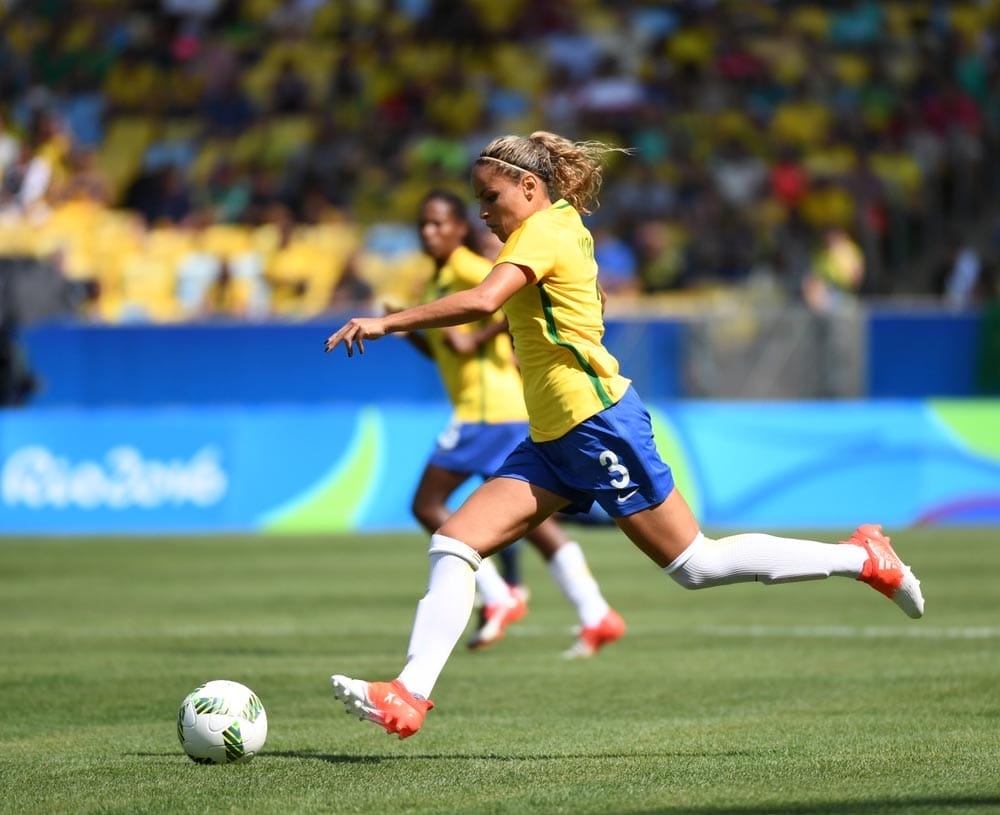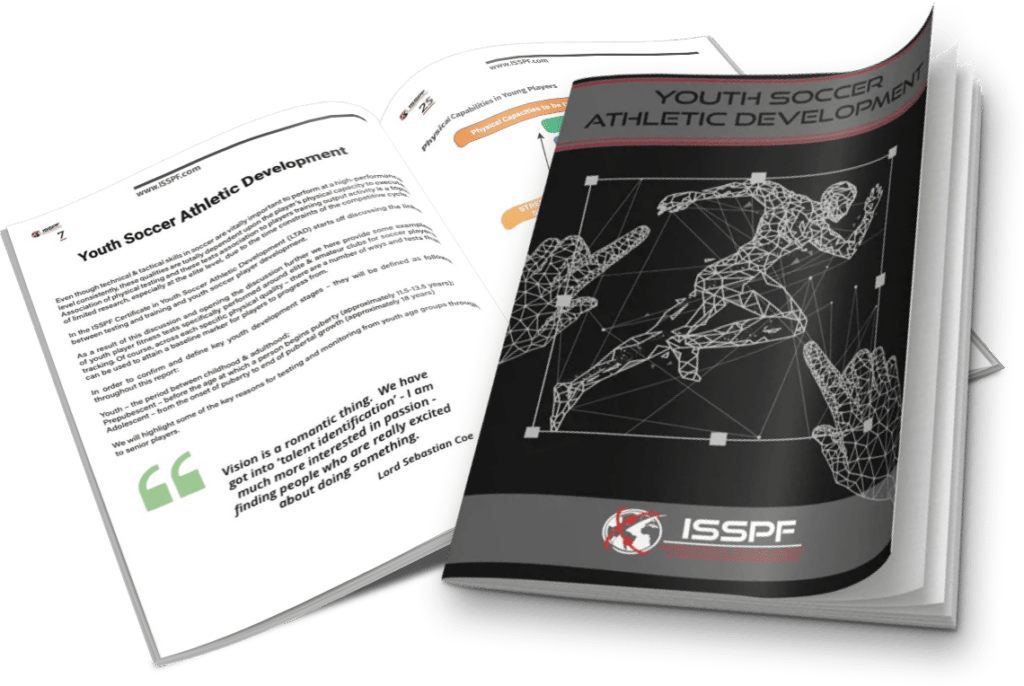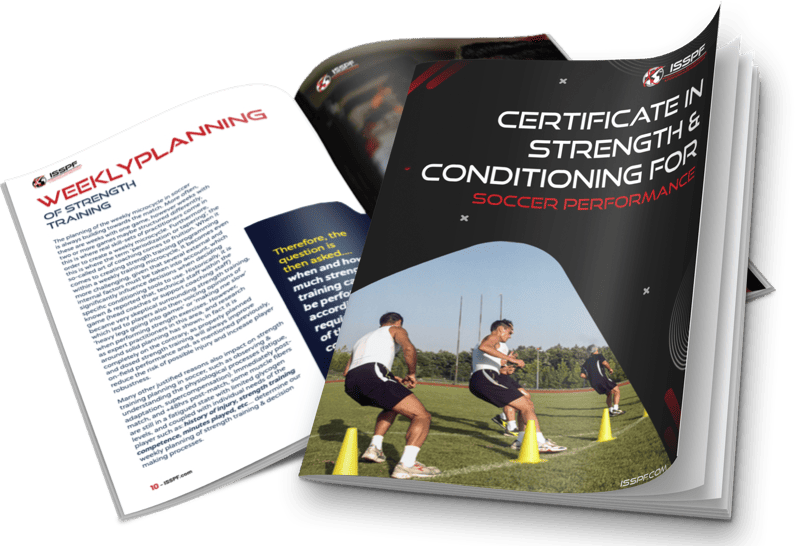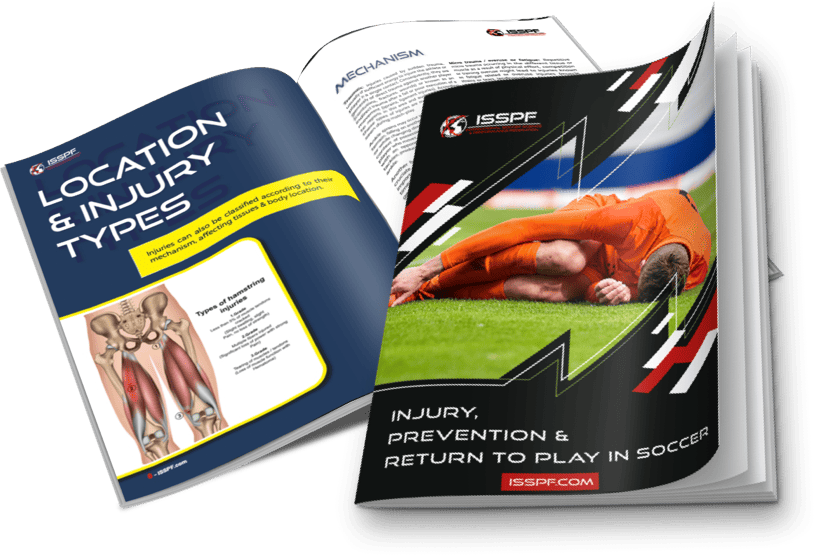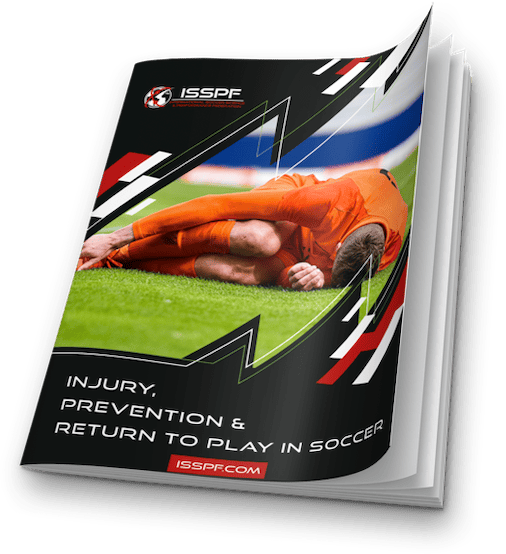Facing the final stages for both European and domestic competition, some have suggested that the rivalry between coaching elite Jurgen Klopp & Pep Guardiola is as good as any that has come before.
Not only do they have different philosophies of play and come from different backgrounds in the game, they have won everything as Head Coaches but still continue to evolve and dominate their profession.
How can you make the difference when each team is perfectly prepared?
How do you win?
You must find another reason why you win…
In the opinion of Jurgen Klopp, the answer has always been to produce a collective identity and philosophy, unmatched by even the richest & powerful spending of rivals.
From a coaching perspective, it is not only about what you coach and the associated outcomes, it is also important to develop a philosophy that underpins what you coach and how you coach it.
This should be the very first step when planning a training schedule. To develop a sound philosophy it is important reflect and to ask yourself the following questions:
5 Questions to Ask Yourself
1 . What are My Values?
Reflecting on your core personal values aids in the overall development of your coaching philosophy. These values serve as your fundamental truths which should always be at the centre of anything you do during the coaching process.
These values make sure that everything you do is truly what you believe and help you communicate your message and methods effectively.
2. What are My Beliefs?
Understanding your values to inform you’re true belief system is critical to developing how your philosophy is presented through your everyday actions.
Having a strong belief system gives credibility to your philosophy and maintains consistency in your message and methods.
3. What is My Personal Mission Statement?
The mission statement is a combination of your values and beliefs that guides your long term aims and objectives. Establishing a mission statement provides a clear direction to your coaching actions and maintains a level of consistency in your overall message.
4. What are My Standards of Performance?
In order to effectively communicate and action your mission statement, it is important to establish both your own personal standards and the standards of performance for your team.
These standards act as a guide for overall behaviours and conduct.
Furthermore, these standards serve as a non-verbal form of communication for conducting your coaching philosophy in practice.
5. What is My Purpose? Why am I Coaching?
In order to truly value your mission statement and display the positive behaviours associated with your values and beliefs, it is important to understand your coaching purpose in the context of your current environment.
The context of this environment shapes your role as a coach and dictates your coaching conduct.
When defining your purpose it is important to consider not only your personal vision and mission but also the vision and mission of the overall club and department in which you are employed.
This allows you as a coach to have a greater impact on the development and performance of the individual athletes, the team and consequently the overall club.
Planning Considerations
When planning your coaching content, it is imperative that a number of variables are considered which informs the volume, intensity and density of your coaching content over the course of the week and on the given training day.
These variables include but are not limited to…
1. The Overall Aims of the Plan
Begin with the end in mind, what is the overall aim of the training process, the weekly objective and consequently the daily training content.
Knowing such aims and objectives serves as a reference for performance and provides a level of objectivity to determine the level of overall success of the plan.
2. The Coaching Philosophy of those Involved
In order to clearly and effectively deliver the coaching content of the training process, it is imperative that each coaches philosophy is considered.
This helps maintain a level of consistency in the delivery of training and facilitates strong communication of the overall aims and objectives of the training process.
3. The Athlete’s Ability to Perform
When planning the content of the training process, the athletes ability should be the cornerstone for which all training methods are considered.
It is important that the coach understands the capacity of the athlete on a given day i.e. – their current physiological & psychological level of performance and also their capabilities i.e. – their ceiling of performance.
Knowing the athletes capacities and capabilities on a given day facilitates the training process to work towards the overall aims and objectives.
4. Training Session Variables
Training variables are what are manipulated during the planning process on an ongoing basis in order to adapt to the considerations mentioned above with the overall goal of achieving the given standards of performance.
The variables that are most important to consider when planning the training content include but are not limited to:
A. Outcomes & Focus
The outcome and focus of the individual athlete, the overall session and the training drills administered to progress towards the overall aims and objectives of the training process.
B. The Training Day Type
The type of training day is used to inform the physiological & psychological elements of performance. One must consider the proximity from the previous performance along with the subsequent performance in order to balance the athletes fitness and fatigue to facilitate peak performance.
C. Training drills utilised
In order to achieve the overall outcomes and focus of a given training session, it is imperative that the training drills utilise are considered in the context of the type of drill, the desired quality of the drill and the duration of the drill.
Knowing such variables and manipulating them accordingly in the context of the training process allows the coach to adapt their training content to the requirements of the athletes.
D. The Opposition
Considering the opposition is a fundamental requirement of the planning process. Accounting for the previous & subsequent opposition aids the coach in developing their area of focus for the session which contributes to the attainment of the aims and objectives and ultimately informs the training content.
E. Athletes Training Status
The balance between the athletes fitness and fatigue must also be considered as part of the planning process.
The intricate balance between the level of fatigue incurred due to the training process and the athletes level of freshness and preparedness dictates the level of adaptation achieved to improve performance.
This level of preparedness and freshness informs the training process by influencing the required volume, intensity and density of a given session in order to achieve the required performance levels.
Session Structure Development
In order to develop an effective training process it is imperative that the coach has a sufficient level of understanding of how to correctly and efficiently structure a training session.
This session structure should be informed by the available research within the field however, it should always be applied within the context of the coaches environment and to the adaptation process of the individual athlete.
In order to achieve this adaptation with the ultimate focus of achieving the aims and objectives of the training process, it is imperative that the mechanisms of the desired adaptation and the associated principles of this adaptation are understood.
Having this level of understanding will then inform the training methods utilised to achieve this adaptation specific to the sporting task, the sport and ultimately the individual athlete.
Use of Technology
Technology has become an integral and informative part of the training process, it provides objective data that informs the overall effectiveness of the training process.
Technology can be utilised through a plethora of approaches during the training process due to the high level of data provided, however, the effectiveness of this data for informing the training process is only as robust as the approaches taken.
Effective approaches to utilising technology can be broken down into both long-term and short-term approaches with the ultimate goal of acting as a support mechanism for implementing the coach’s philosophy.
Long Term Use
Approaches can be utilised to develop an athletic profile to provide a level of insight into an individual’s adaptation and performance, manage transitions between micro, meso and macro-cycles and also between squads and the return to play process following injury.
The long-term use of technology can also provide an opportunity to upskill and educate those involved in the training process.
Technology can also be utilised during a season to assess performance through performance reviews and helps inform how to best prepare the players for the given competition demands.
Short Term Use
Technology can be utilised on a weekly and daily basis to provide objective feedback and quantifiable context to the training process through assessing the levels of adaptation and performance and to identify and progress towards the target outcomes within the context of the technologies use.
Ultimately, technology should be utilised to provide feedback to all involved to support the ongoing process of striving for successful performance!
Join Our Soccer Performance Course
The bespoke courses developed by ISSPF Faculty members are a way of further exposing sport science students, coaching individuals working within the game & other soccer science & performance coaching enthusiasts with a thirst to develop further.
The link below will take you to the hugely popular & expertly designed ISSPF endorsed, & accredited Physical Training & Soccer Methodology online sport science course, which has been described as one of the best online course for further developing & adding to football coaching qualifications, where you will be exposed to football science research and practical examples used within the game.
Soccer Science & Performance Online Sport Science Course
How This Course Will Improve You
- Provides most efficient training methods and detailed insights into developing player fitness alongside tactical strategies & developing a training methodology.
- Gain a better understanding how to maximise development & preparation of players in a more efficient & contemporary game model approach.
- Learn how to balance key training elements from a technical, tactical & physical preparation in order to attain peak performance.
- Practitioners & coaches can only benefit themselves & their players further by a more in-depth knowledge of physical training & soccer methodology.
- Help maximise your decision making through a better understanding & appreciation of tapering & soccer periodisation.
What Does This Course Cover?
Outline of the Physical Training & Soccer Methodology Course:
Module 1: The appliance of science – tapering & periodisation in team sports
Lecturer: Dr. Adam Owen
Module 2: Soccer specific monitoring: Weekly microcycle, planning and performance
Lecturer: Dr. Dawid Golinski
Module 3: Game model building & development: Reinterpreting Tactical Periodisation
Lecturer: Alejandro Romero-Caballero
Module 4: Individualised Periodization in a Soccer Team: A working model
Lecturer: Jarred Marsh
Module 5: An integrated approach to soccer training: Developing a working model
Lecturer: Efthymios Kyprianou
Module 6: Carbohydrate requirements of soccer players: Implications for periodisation
Lecturer: Dr. Liam Anderson
Module 7: Integrating Physical & Tactical Periodisation in Soccer: Senior & Youth levels
Lecturer: Hamish Munro
Module 8: Maximal intensity conditioning periods in soccer: Physical vs. Tactical strategies
Lecturer: Dr. Miguel Angel Campos Vazquez
Module 9: Preparing the modern soccer player: Training session design
Lecturer: Dr. Adam Owen
Module 10: Competitive soccer training microcycle: Structure & justification
Lecturer: Dr. Manuel Segovia
Soccer Science & Performance Online Sport Science Course
Share this article:
